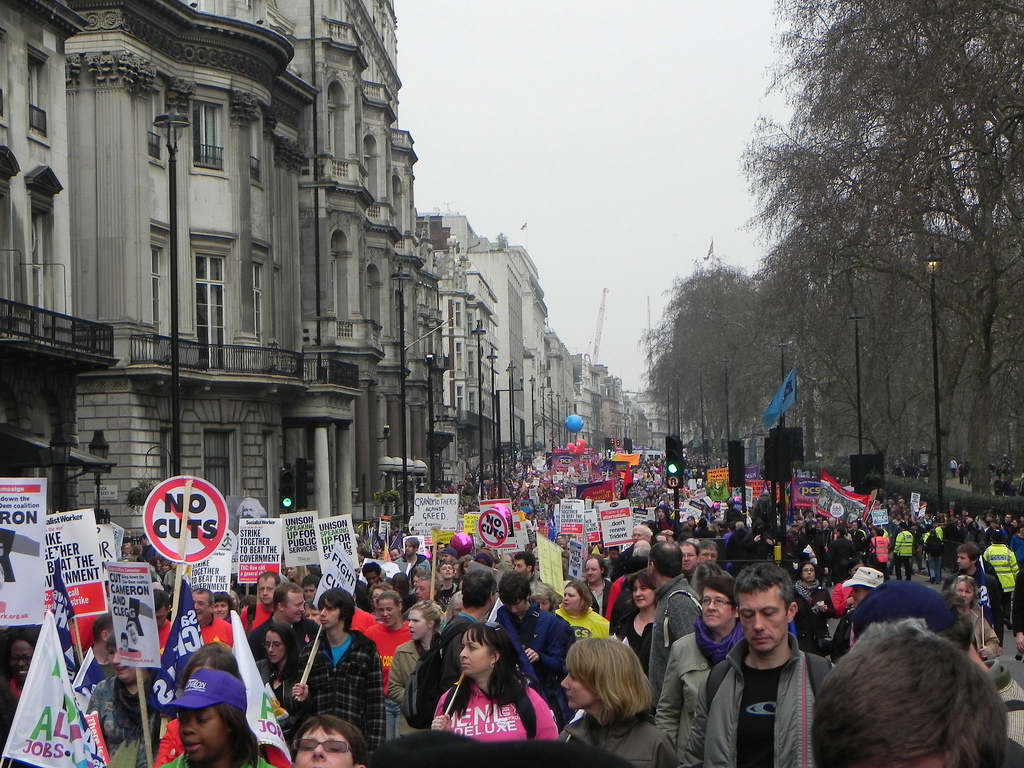We are now faced with a Tory government, unfettered by the Liberal Democrats’ capacity to arguably curb the former’s ideological assault on society’s most vulnerable. Left-leaning students, who, although may be worldly and well informed of current-affairs, woke up on Friday morning with an immense sense of helplessness that their passionately held views have amounted to very little, when only shared amongst friends of the same political orientation. One of the issues now confronting students, is that our political engagement with friends in person, and on social media, has obscured the fact that many of us have not been politically active on the streets. I am certainly guilty of this myself. Yet, this helplessness has coincided with a new found sense of urgency, a need to do something, to shout loudly, and organise with others in any way, shape or form.
I have been on many protests, and attended events set up by local organisations, but, and I am sure this applies to many others, most of the instances of my political engagement is characterised by sporadic, faltering interventions, particularly on social media, which carry the danger of lacking interactions with anyone other than the immediate student body. What Friday should represent is a turning point in the approach of particular students on the left. We need to get involved, as often as is humanly possible, in the grassroots organisations and nationwide movements that can oppose this incumbent, vindictive government.
Our time at university is immensely constructive in developing our political views. Indeed, through Facebook, we certainly gain an enlightening exposure to articles that we may not otherwise have read. Yet, to be immersed in your friends’ views has the dangerous tendency of merely confirming your own political views, and possibly inflating the misconception that many others similarly hold those views.
Granted, one could argue that there is only so much we could have done, especially given the subversive influence of the right-wing press, our woefully inadequate voting system which denied many students’ votes for the Greens, and mutually reinforcing manifestations of Scottish and British nationalism, which have fundamentally changed our political system. However, it has now become apparent that the need for us to become more politically active pertains to far more than sharing articles on Facebook, or even voting at the end of fixed-term parliaments. Becoming politically active means far more than a sycophantic adherence to a political party.
Where-ever you are studying, there are a myriad of ways to get organised on a local, grassroots level, and the opportunity to protest through a medium other than social media, to rally alongside people who are outside our own student bubbles. In Edinburgh for example, The Living Rent Campaign, a group comprised of activists of different ages, is making headway in arguing for rent caps. On a UK-wide level, Bring Back British Rail has admirably increased its support base over the past few years, and is now in a position where it can effectively coordinate protests outside train stations across the UK, as a form of spreading awareness of the disastrous privatisation of our railway services. With an impending referendum on the EU, it will become imperative, that rather than simply preaching to our friends about benefits of EU membership, we organise to convince others up and down the UK – who do not share our views – of retaining transnational, institutional links. We need not despair now. Incrementally, we can broaden the scope of our own political interactions, recognising the diversity of views held by the wider electorate, and crucially, getting involved on the streets, shouting as loud as we possibly can.
Image: Celesteh

